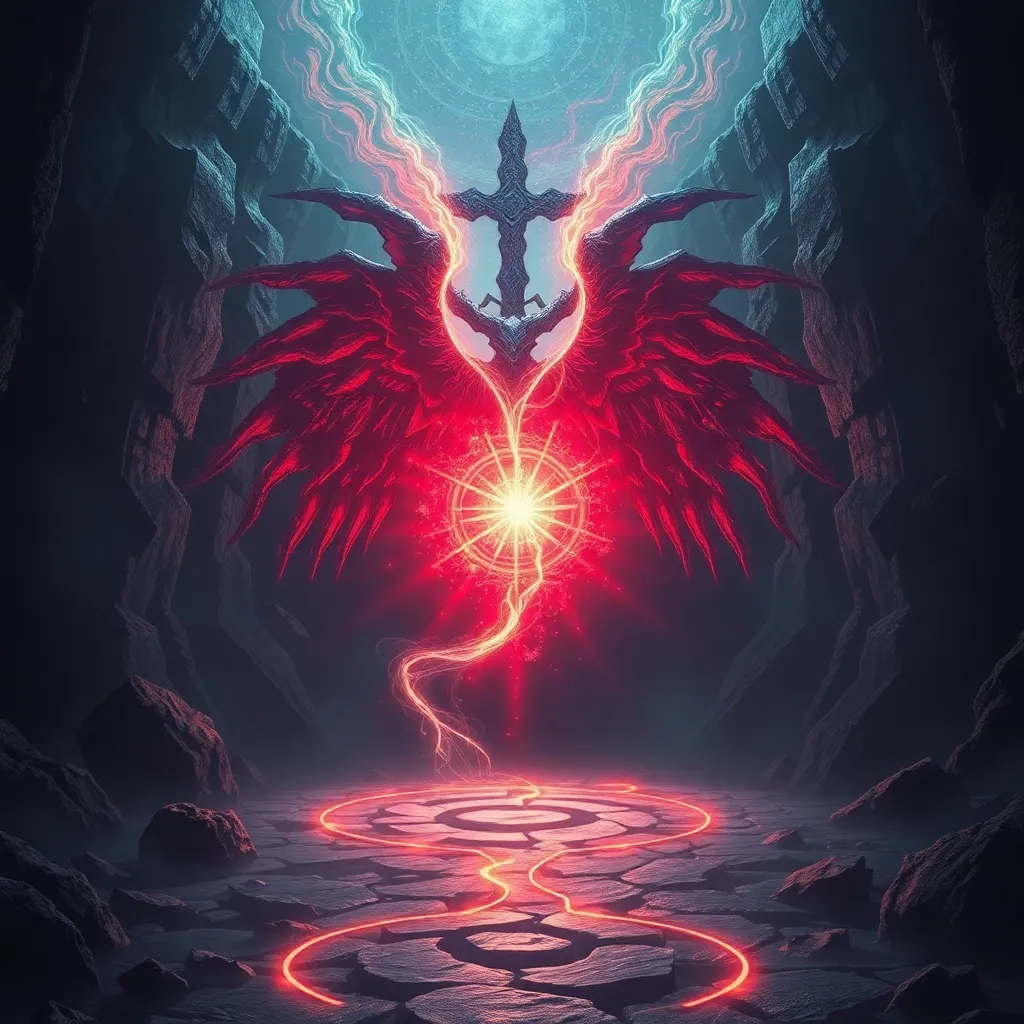The End of Days: Myths That Challenge Our Beliefs
Introduction to Apocalyptic Myths
Apocalyptic myths are narratives that describe the end of the world or a significant transformation of society. These stories often embody a moral lesson or a warning, serving as reflections of the anxieties and hopes of a culture. Across various civilizations, these myths have played a crucial role in shaping worldviews, ethics, and social structures.
Exploring these myths is vital in understanding contemporary beliefs about the future. In a world facing numerous challenges, from climate change to technological advancements, the resonance of these age-old stories can inform our responses to modern existential threats.
Historical Perspectives on End-of-Days Myths
Throughout history, many ancient civilizations have crafted their own end-time narratives, each reflecting their unique contexts and values. For instance:
- Mesopotamia: The Epic of Gilgamesh includes themes of mortality and the quest for eternal life, hinting at societal fears about death and the afterlife.
- Mayans: The Mayan calendar famously predicted the end of the world in 2012, which was interpreted by some as a sign of a new beginning rather than an end.
As history progressed, apocalyptic beliefs evolved, often intertwined with religious teachings. Major religions have shaped end-time prophecies, which have significantly influenced followers’ perceptions of morality and justice.
Apocalyptic Literature: A Deep Dive
Religious texts offer a rich tapestry of apocalyptic imagery and prophecies. For example:
- The Book of Revelation in Christianity outlines a dramatic vision of the end times, complete with battles between good and evil, and the ultimate judgment of souls.
- The Quran discusses the Day of Judgment, emphasizing accountability for one’s actions and the dichotomy between paradise and hell.
- Hindu scriptures describe cycles of creation and destruction, with the concept of ‘Kali Yuga’ representing the current age of darkness that will eventually lead to renewal.
These texts not only serve as spiritual guides but also shape the beliefs and actions of adherents, often motivating them to live in accordance with the anticipated outcomes of these prophecies.
Modern Interpretations of End-of-Days Myths
In the contemporary era, the influence of science and technology has transformed traditional apocalyptic thinking. While some cling to religious narratives, others look to scientific predictions regarding existential risks:
- Secular beliefs: Many individuals have turned to secular philosophies that interpret the end times through the lens of social and environmental crises.
- Popular culture: Films, books, and television series like “The Walking Dead” and “Mad Max” have romanticized apocalyptic scenarios, reflecting societal fears and desires.
This modern portrayal of apocalyptic events often blurs the lines between reality and fiction, influencing public perception and discourse on global issues.
Psychological Impacts of Apocalyptic Beliefs
The human psyche is deeply affected by the fear of existential threats. Apocalyptic beliefs can lead to various responses:
- Anxiety and Fear: The anticipation of catastrophic events can induce chronic stress and anxiety, affecting mental health.
- Behavioral Changes: People may alter their lifestyles, diet, and relationships, often seeking to prepare for potential disasters.
- Coping Mechanisms: Some individuals may turn to community building or spiritual practices as a way to cope with the fear of an uncertain future.
Understanding these psychological impacts is crucial for addressing the societal implications of pervasive apocalyptic narratives.
Environmental Concerns and End-of-Days Scenarios
In recent years, climate change has emerged as a significant catalyst for apocalyptic thinking. Environmental movements frequently frame their concerns around imminent ecological collapse:
- Climate Activism: Activists often depict climate change as a looming apocalypse, urging immediate action to avert disaster.
- Case Studies: Events like wildfires, hurricanes, and melting ice caps are frequently cited as indicators of our planet’s declining health, reinforcing apocalyptic narratives.
These environmental concerns challenge societies to reconsider their values and practices in light of potential end-of-days scenarios.
Technological Catastrophes: A New Age Apocalypse?
As technology advances, new fears emerge regarding the potential for catastrophic events:
- Artificial Intelligence: The rapid development of AI has raised concerns about loss of control and unintended consequences, reminiscent of classic apocalyptic narratives.
- Nuclear Warfare: The threat of nuclear conflict continues to loom large, echoing fears of annihilation found in many apocalyptic texts.
These technological anxieties prompt ethical considerations about the direction of human progress and the potential for self-destruction.
Cults and Movements: The Human Response to Apocalypse
Throughout history, various cults and groups have embraced apocalyptic beliefs, often leading to significant social consequences:
- Notable Cults: Groups like Heaven’s Gate and the Branch Davidians have gained attention for their extreme interpretations of apocalyptic prophecies.
- Impact on Society: These movements can lead to isolation, radicalization, and, in some cases, tragic outcomes.
The dynamics of belief and community within these groups highlight the human need for connection in the face of existential fears.
Challenging the Myths: Rational Responses to Apocalyptic Thinking
To counteract fear-based narratives, it is essential to adopt rational perspectives:
- Scientific Inquiry: Evidence-based approaches can debunk myths and provide realistic assessments of future risks.
- Education and Critical Thinking: Fostering critical thinking skills can empower individuals to challenge unfounded fears and make informed decisions.
- Community Engagement: Encouraging dialogue about fears and aspirations can create a sense of agency and collective purpose.
By promoting rational responses to apocalyptic myths, society can better navigate the challenges of the modern world while fostering hope and resilience.



